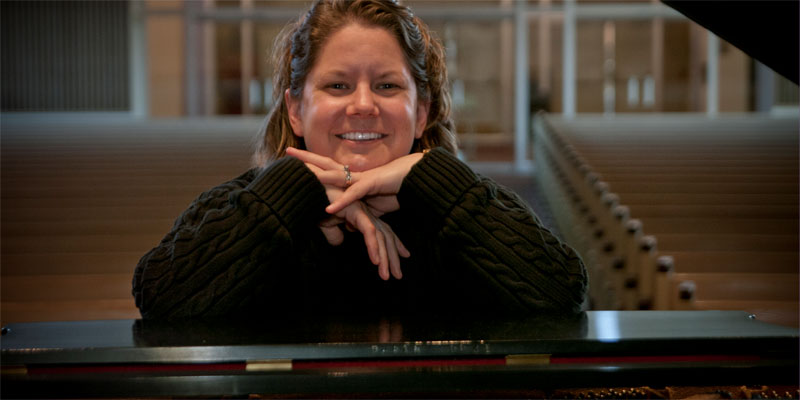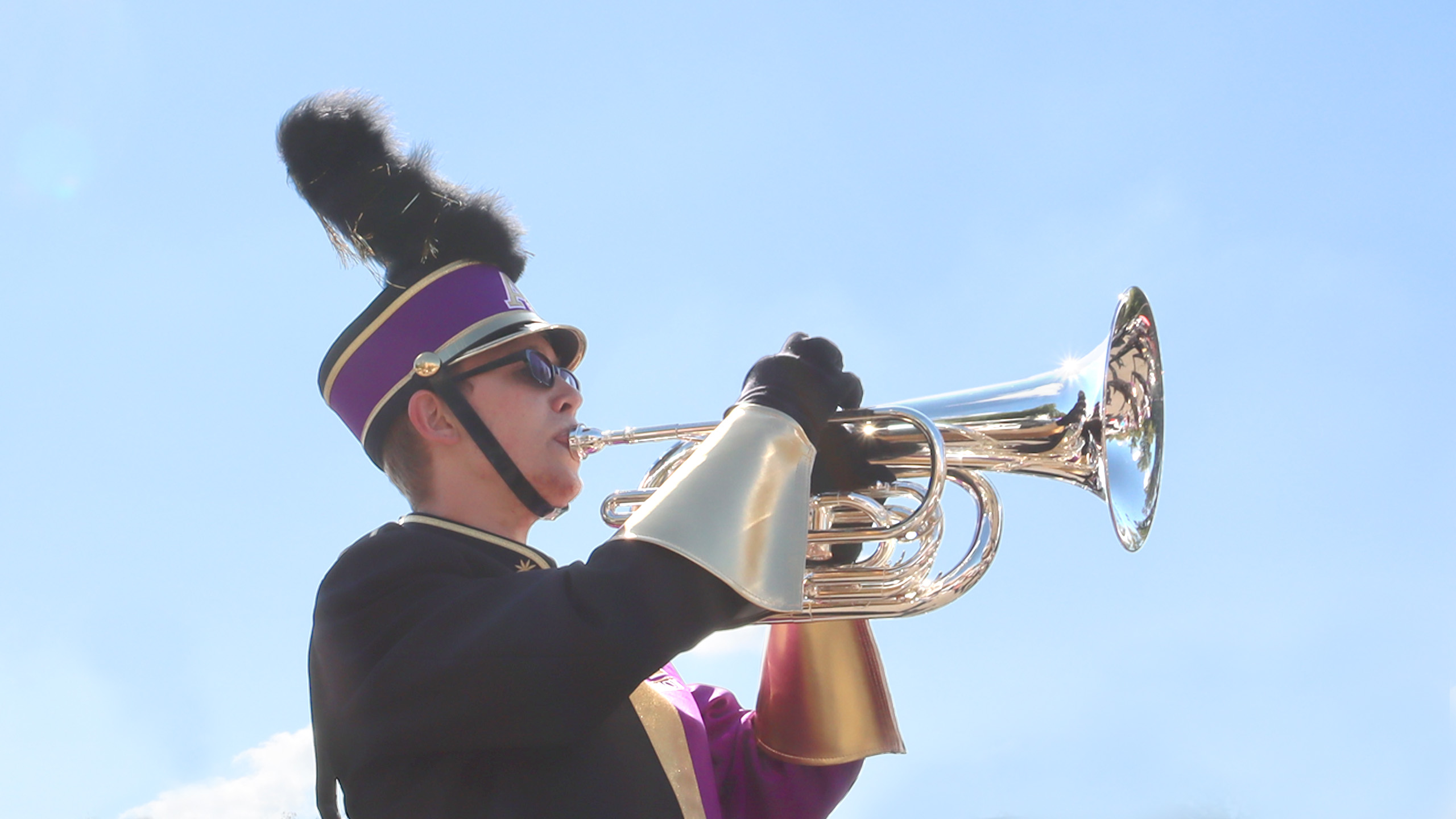Music’s Lia Jensen-Abbott Explores Variations in Global Diabelli Project
April 6, 2020
By Jake Weber

Jensen-Abbott in Goodrich Chapel. She joined Albion’s faculty in 2008.
It’s fascinating music trivia: one of Beethoven’s greatest piano works, the Diabelli Variations, is Volume II, but Beethoven did not write, or even contribute to, Volume I. Some 200 years later, Albion College music professor Lia Jensen-Abbott—whose doctoral work focused on Beethoven’s Variations—is now putting a new spin on Volume I, with an idea the creative genius of Beethoven could never have imagined.
“Of course, we have a website,” Jensen-Abbott says. “You can’t have a global music project without one.”
This month marks the public launch of Albion College’s Diabelli Squared Project, designed by Jensen-Abbott to gather active composers worldwide around Diabelli’s original 19th-century idea.
Jensen-Abbott explains that Anton Diabelli, a piano teacher and music publisher, hit on the idea of compiling a set of variations (different arrangements of the same simple tune) as both a fundraising and business-generating effort. Fifty of Germany and Austria’s most respected composers, including Franz Schubert and the 11-year-old Franz Liszt, contributed pieces for the Diabelli Variations’ first volume (many great stories explain why Beethoven declined to participate, but most scholars doubt any are credible).
Jensen-Abbott notes that Diabelli also compiled Volume I out of a sense of nationalistic pride. Volume I showcases the amazing pool of contemporary talent (excepting Betthoven, the most popular composer of the era). By having each composer work from the same tune, the variations highlight diverse interpretations of one musical idea.
Fast-forward to 2017, as Jensen-Abbott began to think about Volume I, its reflection of a 19th-century definition of “diverse,” and how this might relate to diversity as a 21st-century value and point of pride for Albion.
“The original Variations are all written by white males from the same musical tradition,” says Jensen-Abbott, noting that several of the contributors had teacher-student or familial relationships or had worked for the same patrons. “I began to critically think about what it would be like to have a Diabelli that was global in scope and diverse in all regards: ethnicity, geography, gender, etc., as much as my grant money would allow.”
Today, the Diabelli Squared Project includes 10 commissioned works that decidedly reflect Jensen-Abbott’s criteria. Her composers range from a 2019 Albion alumnus to a 70-something jazz pianist, an international composer and music professor at the University of Colorado, and musicians in South Africa, Australia, Costa Rica and Germany. By the end of 2020, Jensen-Abbott expects the Project to include composers from six continents.
Jensen-Abbott is now preparing to record these first compositions during her spring 2021 sabbatical. Already, this preparation has had positive impacts on her teaching as well.
“The classes I teach culminate with exploring current trends in art music. This project has exposed me to the most recent trends in musical composition across several different countries,” she notes. “I am more closely (i.e. physically) aware of the techniques required to perform absolutely current music, and that has made me a better performing pianist, and hopefully, a better teacher for my piano students. Finally, the soundscapes created by each composer are just so intense and magical and different, that I am now hearing things in new ways and understanding composition in its most basic essence more critically.”
Jensen-Abbott explains that the Diabelli Squared Project’s website is launching now in order to attract the attention—and hopefully, compositions—from anyone, Free from a publishing deadline or page count, Jensen-Abbott sees the Project stretching indefinitely into the future.
She also sees it playing a part in making the world a better place.
“The variations form, at its inherent core, elevates diversity as an element to be appreciated and championed, while each variation maintains some kind of connection with the original theme,” Jensen-Abbott says. “The process is a commentary about social justice from a psychological, cultural, musical and structural viewpoint.
“If we are indeed going to be able to work together as a global society, we must be able to embrace difference as well as find commonalities between our varied cultures,” she adds. “This defines music and the liberal arts, and the Diabelli Squared Project is part of both.”
